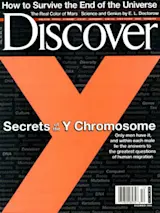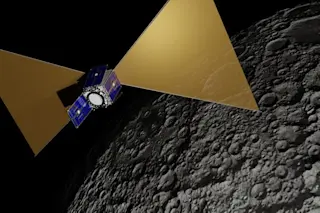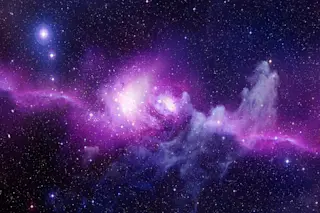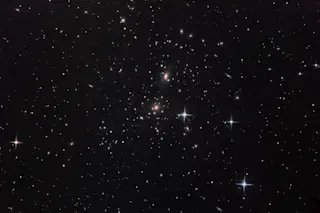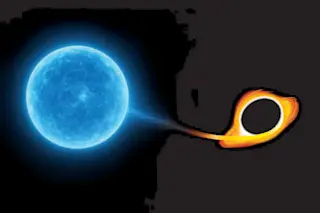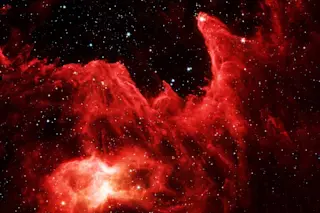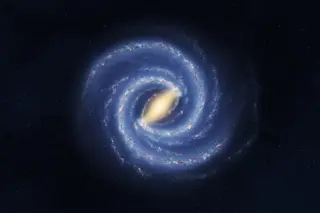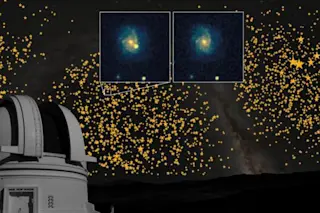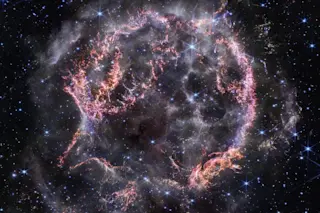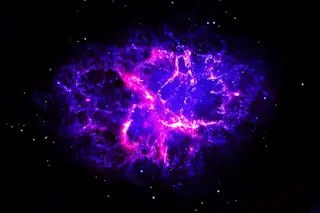The universe is out of control. Not only is it expanding but the expansion itself is accelerating. Most likely, such expansion can end only one way: in stillness and total darkness, with temperatures near absolute zero, conditions utterly inhospitable to life. That became evident in 1998, when astronomers at the Lawrence Berkeley National Laboratory and Australian National University were analyzing extremely distant, and thus ancient, Type Ia supernova explosions to measure their rate of motion away from us. (Type Ia supernovas are roughly the same throughout the universe, so they provide an ideal “standard candle” by which to measure the rate of expansion of the universe.)
Physicists, scrambling to their blackboards, deduced that a “dark energy” of unknown origin must be acting as an antigravitational force, pushing galaxies apart. The more the universe expands, the more dark energy there is to make it expand even faster, ultimately leading to a ...


